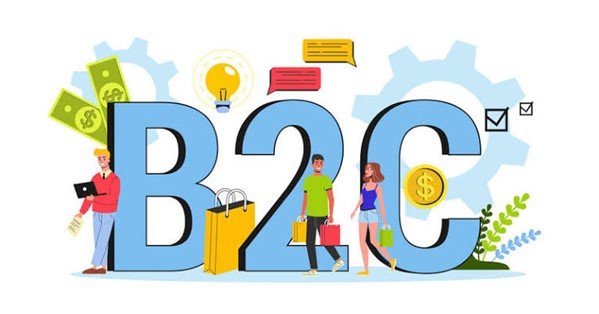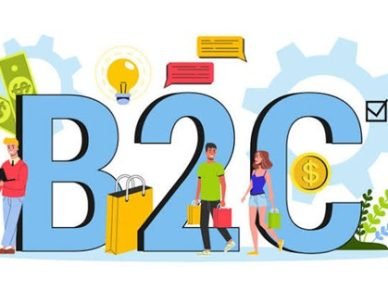
In today’s competitive landscape, developing a robust B2C (business-to-consumer) marketing strategy is crucial for brands aiming to capture the attention of individual consumers. The digital revolution has transformed consumer behavior, making it essential for marketers to adapt, innovate, and connect meaningfully with their audience. This article will provide an in-depth look into the various strategies that can enhance your B2C marketing efforts, with each section focusing on a different key aspect.
Understanding Your Target Audience
The cornerstone of any successful B2C marketing strategy is a deep understanding of the target audience. To resonate with consumers, marketers need to go beyond surface-level demographics. This means analyzing psychographics—values, interests, and behaviors—which can provide more actionable insights into consumer motivations. By building buyer personas, companies can develop tailored messages that connect on a more personal level with their intended audience.
Consumer data collection is an effective way to gather these insights. Data can be gathered through various means such as surveys, social media analysis, or website analytics. This information helps companies understand the evolving preferences of their audience and tailor content accordingly. The key is to leverage data to deliver messages that are both timely and relevant, which fosters greater brand loyalty.
Additionally, knowing the customer’s pain points and lifestyle is essential for positioning your product effectively. For instance, brands that understand the emotional drivers of their audience can create marketing campaigns that touch upon these sentiments, driving home the brand’s relevance and value. A thorough understanding of the target audience lays the groundwork for all other marketing efforts, making it the bedrock of effective B2C campaigns.
Personalization and Segmentation
Personalization is at the heart of modern B2C marketing. Today’s consumers expect experiences that are tailored to their specific needs and preferences. Companies that use personalization effectively see increased engagement and conversions because the content feels directly relevant to each consumer. This involves utilizing consumer data to customize messages, product recommendations, and offers that align with individual preferences.
Segmentation plays a crucial role in personalization. By dividing a larger market into smaller groups based on specific characteristics like buying behavior, demographics, or interests, brands can deliver more precise marketing efforts. Rather than adopting a one-size-fits-all approach, segmentation ensures that messaging is nuanced and resonates deeply with different consumer segments. This makes the marketing efforts more impactful and cost-effective.
The Role of the CMO in B2C Marketing
The Chief Marketing Officer (CMO) plays a pivotal role in shaping and executing marketing strategies that resonate with B2C audiences. In a consumer-driven market, the CMO must wear many hats—acting not only as a strategic visionary but also as a steward of brand storytelling and customer experience. Their leadership influences everything from campaign ideation to the execution of personalized content, all while keeping the brand aligned with its core values and consumer expectations.
For smaller and growing companies, it can be challenging to maintain a full-time CMO position due to budget constraints. This is where the concept of a fractional CMO comes into play. A fractional CMO offers the expertise of a seasoned marketing executive without the full-time commitment or cost, making them an ideal choice for B2C companies needing expert guidance at critical points in their growth. They provide strategic oversight and help ensure that marketing initiatives are focused, efficient, and aligned with the evolving dynamics of consumer behavior.
In addition, the CMO—whether full-time or fractional—needs to balance creative innovation with data-driven insights. Today’s marketing landscape demands an agile approach, where campaigns can quickly adapt based on feedback and shifting consumer preferences. By leveraging customer data and predictive analytics, CMOs help craft more targeted campaigns, ensuring that the brand remains relevant and appealing in a crowded marketplace. This ability to adapt and lead strategic shifts is what defines a successful CMO in the B2C sector.
Crafting Compelling Content
Content remains king, but it is the relevance and context of that content which truly dictate its success in B2C marketing. Compelling content should entertain, educate, or solve a problem for the consumer. To engage today’s discerning audience, marketers must focus on creating content that answers consumers’ questions and provides value in a way that resonates with them emotionally.
Storytelling is one of the most effective ways to create compelling content. Stories have the power to humanize a brand and create emotional connections with an audience. When a company can show how its products fit into the daily lives of consumers—solving problems, making life easier, or adding joy—the content becomes much more relatable and impactful. This emotional resonance often leads to stronger customer loyalty and advocacy.
Furthermore, the format of the content also matters. B2C audiences respond well to a variety of formats including videos, blogs, podcasts, and social media posts. For instance, video marketing has proven to be incredibly effective, given the widespread consumption of video content on social media platforms. A diverse content strategy ensures that a brand stays visible to its audience across different channels, keeping it top-of-mind for potential customers.
Leveraging Social Media for Engagement
Social media is an essential platform for B2C marketers. It allows brands to connect directly with their target audience and foster an ongoing dialogue. Platforms like Instagram, Facebook, TikTok, and Twitter are powerful tools not only for promoting products but also for engaging with consumers in an authentic manner. Effective social media strategies combine promotional content with posts that educate, entertain, and inform, creating a balance that keeps audiences interested.
Influencer marketing is an effective tactic within social media marketing that helps brands reach new audiences through trusted voices. Influencers have established followings that trust their recommendations, making them valuable partners in promoting your brand. Micro-influencers, in particular, can help companies tap into niche audiences that align well with the brand’s values and target market. This creates opportunities for highly-targeted engagement, which often translates into higher conversion rates.
Interaction is key in social media marketing. Brands need to respond to comments, engage in conversations, and show appreciation for their followers. This kind of two-way communication not only builds trust but also fosters a sense of community around the brand. Consumers who feel heard and valued are more likely to become loyal advocates for the company.
Optimizing the Customer Journey
In B2C marketing, understanding and optimizing the customer journey is crucial for increasing conversions. The customer journey encompasses every touchpoint a consumer has with a brand, from initial awareness to post-purchase engagement. Ensuring that this journey is seamless and intuitive can significantly enhance customer satisfaction and loyalty.
The first step in optimizing the customer journey is identifying any friction points that might hinder progression through the sales funnel. Whether it is a cumbersome checkout process or confusing website navigation, each obstacle can reduce the likelihood of conversion. Marketers need to focus on simplifying these processes, ensuring that moving from one stage to another is as straightforward as possible. A smooth experience keeps consumers engaged and lowers cart abandonment rates.
Beyond transactional elements, the post-purchase experience should not be overlooked. Customer retention efforts, such as personalized follow-ups, exclusive offers, or educational content on how to get the most out of their purchase, contribute significantly to customer loyalty. When brands continue to provide value after a sale, they turn one-time buyers into repeat customers, ultimately improving lifetime value.
Harnessing Data and Analytics
Data and analytics are powerful tools in B2C marketing, providing insights that help refine strategies and boost effectiveness. By analyzing consumer behavior data, companies can determine which aspects of their marketing campaigns are working and where improvements are needed. Understanding metrics such as conversion rates, engagement levels, and customer acquisition costs allows marketers to make informed decisions.
Predictive analytics is also gaining traction in B2C marketing. By using historical data to forecast future behaviors, companies can tailor marketing campaigns to meet anticipated consumer needs. This not only helps in personalizing campaigns but also in timing them perfectly to maximize impact. For instance, predictive models can help determine when a consumer is most likely to make a purchase, allowing marketers to schedule promotions accordingly.
Another essential aspect of data-driven marketing is A/B testing. Testing different versions of a campaign element—such as an email subject line or landing page design—can provide valuable insights into what works best for your audience. A/B testing is a powerful method for optimizing marketing initiatives and ensuring that every aspect of a campaign is as effective as possible.
Building Loyalty Through Customer Experience
The final pillar of effective B2C marketing is building loyalty through outstanding customer experience. In a crowded marketplace, where consumers have a plethora of options, customer experience can often be the differentiating factor. Providing excellent service, clear communication, and easy accessibility to support channels are just some of the ways to enhance the overall experience for customers.
Personalized experiences play a key role here as well. Brands that remember past purchases, preferences, and even birthdays are perceived as more attentive and caring. Loyalty programs can further enhance the customer experience by offering rewards, exclusive deals, or early access to new products. These programs incentivize repeat purchases and foster a deeper sense of belonging between the brand and its customers.
Moreover, gathering feedback is crucial for continuously improving customer experience. Brands that listen to their customers and make adjustments based on feedback demonstrate a commitment to meeting consumer needs. This dedication to improvement not only strengthens trust but also encourages positive word-of-mouth, turning satisfied customers into enthusiastic brand advocates.
By focusing on these key strategies—understanding the target audience, using personalization, crafting engaging content, leveraging social media, optimizing the customer journey, using data effectively, and building loyalty through superior customer experiences—B2C marketers can create powerful, resonant campaigns that connect meaningfully with consumers and drive long-term success.
















Leave a Reply